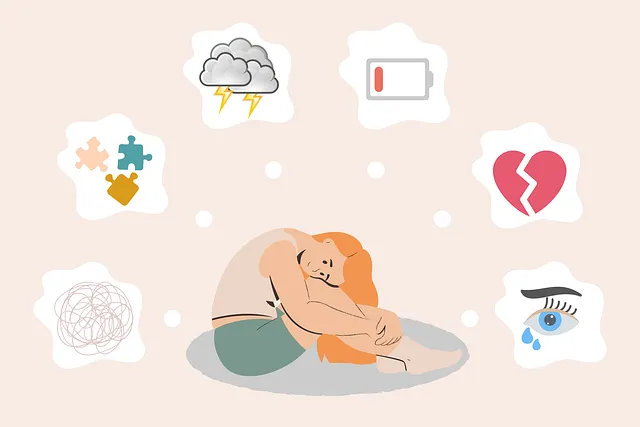Healthcare providers at Littleton Kaiser Permanente face high stress levels, leading to potential burnout. To combat this, the organization prioritizes mental wellness with comprehensive mental health coverage, including counseling services and employee assistance programs. They encourage self-care through structured routines, mindfulness, and self-awareness exercises. Their Community Outreach Programs promote open conversations about mental health, reduce stigma, and enhance job satisfaction. These initiatives aim to prevent burnout, improve retention rates, and ensure healthcare staff can deliver high-quality patient care.
“Healthcare provider burnout is a growing concern, impacting not just individual well-being but also patient care. This article explores effective strategies to prevent burnout, focusing on three key areas. We delve into recognizing early signs of burnout, emphasizing the importance of self-care practices in stress management and fatigue reduction. Additionally, we examine organizational support mechanisms, highlighting Littleton Kaiser Permanente’s approach to mental health coverage as a model for other healthcare institutions. By implementing these strategies, healthcare providers can enhance their resilience and deliver optimal patient care.”
- Recognizing Burnout Signals: Early Detection for Healthcare Providers
- Implementing Self-Care Practices to Combat Stress and Fatigue
- Organizational Support and Resources for Burnout Prevention at Littleton Kaiser Permanente
Recognizing Burnout Signals: Early Detection for Healthcare Providers

Healthcare providers are often on the frontlines, dedicating their lives to caring for others. However, this constant exposure to stress and high-pressure situations can lead to burnout. Recognizing early signals is crucial for preventing this. Burnout may manifest as physical or emotional exhaustion, feelings of depersonalization, and a decreased sense of accomplishment. At Littleton Kaiser Permanente, mental health coverage plays a vital role in supporting providers’ well-being.
By being vigilant, healthcare professionals can identify these signs promptly. This early detection allows for the implementation of effective stress management techniques and anxiety relief strategies, such as those offered through Community Outreach Program initiatives. Such programs aim to foster a supportive environment, enhance resilience, and encourage open conversations about mental health, ultimately preventing burnout and ensuring the well-being of healthcare providers.
Implementing Self-Care Practices to Combat Stress and Fatigue

Implementing self-care practices is an essential strategy to combat stress and fatigue among healthcare providers. At Littleton Kaiser Permanente, for instance, mental health coverage emphasizes the importance of prioritizing well-being. This includes adopting a structured Self-Care Routine Development for Better Mental Health. Regular engagement in activities like exercise, mindfulness meditation, or creative pursuits can significantly reduce workload-related pressures.
Beyond this, Self-Awareness Exercises play a pivotal role in preventing burnout. By cultivating awareness of one’s emotional state and physical cues, healthcare professionals can proactively address signs of exhaustion. Mental Health Awareness initiatives within organizations should also include resources for stress management, promoting open conversations about mental well-being, and encouraging staff to take advantage of available support services.
Organizational Support and Resources for Burnout Prevention at Littleton Kaiser Permanente

At Littleton Kaiser Permanente, organizational support and resources play a pivotal role in burnout prevention. The healthcare provider prioritizes mental wellness through comprehensive programs that cater to both employees’ physical and psychological well-being. This includes access to mental health coverage, counseling services, and employee assistance programs designed to address stress management, depression prevention, and overall Mental Health Awareness.
The organization has invested in Development of Mental Wellness Coaching Programs as a strategic initiative to foster a supportive environment. These programs not only provide individuals with tools to cope but also encourage open discussions about mental health, reducing the stigma associated with seeking help. By integrating these resources into their work culture, Littleton Kaiser Permanente aims to enhance job satisfaction, improve retention rates, and ensure that healthcare providers can deliver optimal patient care without the burden of burnout.
Burnout among healthcare providers is a pressing issue, but through early detection of signals like decreased patient satisfaction and increased stress levels, alongside implementing self-care practices and leveraging organizational resources, it can be effectively prevented. At Littleton Kaiser Permanente, the comprehensive approach to burnout prevention includes mental health coverage as a key component, fostering an environment where professionals feel supported and equipped to manage their well-being. By prioritizing these strategies, healthcare organizations like Littleton Kaiser Permanente can ensure their staff remain engaged, compassionate, and dedicated to patient care.






